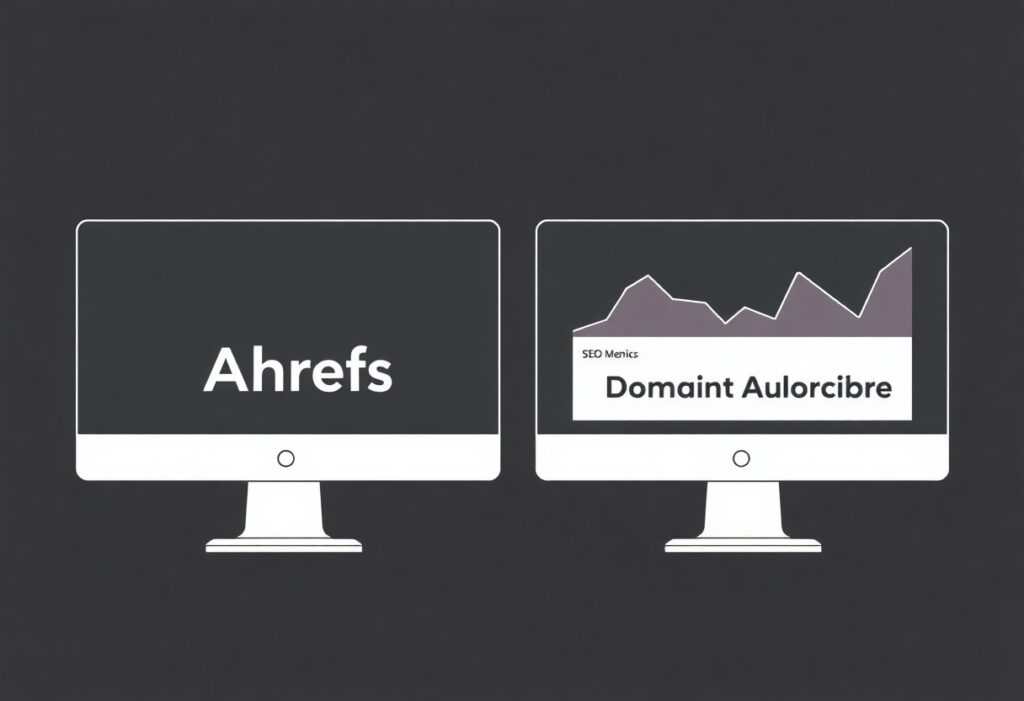Page Age in SEO plays a crucial role in determining your website’s ranking and visibility. As you delve deeper into online marketing, you might wonder how the age of your web pages influences their performance. While many believe that older pages naturally rank higher, the reality is far more complex. In this post, we will explore the true impact of Page Age on your site’s visibility, especially when combined with innovative strategies from Rank Authority. By the end, you’ll gain valuable insights to enhance your website’s performance.
Understanding Page Age
Your understanding of Page Age plays a significant role in how your website performs in search engine rankings. Page Age refers to the duration a webpage has existed on the internet since its initial publication. It can impact not only search engine visibility but also user trust. Older pages generally have more authority and credibility, which search engines often consider when ranking. Thus, it’s vital to grasp its implications for your SEO strategy at Rank Authority.
Definition and Importance
Along with its technical aspects, Page Age carries significant importance in SEO. It’s often viewed as an indicator of a website’s reliability and credibility. Older pages usually experience higher traffic, leading to increased backlinks and engagement, which signals search engines that your content is valuable. Thus, having a solid understanding of Page Age can help you cultivate a more authoritative online presence.
Factors Influencing Page Age
Across various elements, several factors can influence Page Age, such as:
- Original publication date
- Content updates and freshness
- User engagement metrics
- Backlink profile
Perceiving these factors will enable you to optimize your existing content and increase your site’s longevity.
To better understand how Page Age operates, consider the following factors:
- The original publication date informs search engines how long your page has been available.
- Consistent content updates can revitalize your page and attract more visitors.
- User engagement metrics like time on page and bounce rate contribute to a page’s perceived value.
- A robust backlink profile not only boosts page authority but also reflects its relevance.
Perceiving these dynamics helps you create a focused strategy that aligns with your goals at Rank Authority, ensuring your website stands out in search results.

The Relationship Between Page Age and SEO
It is often believed that Page Age plays a significant role in SEO rankings. While age alone doesn’t guarantee a top spot, it contributes to a site’s credibility and authority over time. When your pages have existed longer, they may accumulate backlinks and gain user trust, influencing their position in search results. However, the relevance and quality of the content are just as vital. Therefore, maintaining a balance between content quality and Page Age can enhance your SEO strategy effectively.
Historical Perspectives on SEO
Between the early days of search engine optimization, focus largely centered on Keyword Stuffing and backlinks. Page Age was less discussed but was still considered an indirect factor for search engine ranking. Older pages typically had more backlinks, leading to better search visibility. Nevertheless, as algorithms evolved, the quality of content began to overshadow age, shifting the SEO perspective.
Current SEO Practices
Before diving deeper into Current SEO Practices, let’s understand that today’s strategies focus more on user experience and content relevance than solely on Page Age. Factors like mobile optimization, page speed, and engaging content take precedence in determining search rankings.
The landscape of SEO has transformed, placing importance on user engagement and content quality. The current practices emphasize creating valuable, authoritative content that addresses user intent. While Page Age can be beneficial, it’s your content strategy that will ultimately enhance your site’s visibility. With Rank Authority’s AI-driven solutions, you can optimize your pages for both quality and Page Age, ensuring a holistic approach to your SEO strategy. Ultimately, focusing on both aspects will lead to more sustainable results in search engine rankings.
Myths About Page Age and Ranking
Now, when it comes to Page Age, many myths surround its impact on SEO rankings. These misconceptions can mislead you about how search engines evaluate your website. Some believe that older pages automatically rank better, or that a website’s age alone influences its authority. However, the reality is more nuanced, and focusing solely on age can divert your attention from more important factors that actually drive SEO success.
Common Misconceptions
The notion that Page Age is the primary dictate for search engine rankings is one of the more prevalent misconceptions. Many site owners argue that older pages inherently have better visibility. However, this oversimplifies the multitude of elements that Google considers when ranking pages.
Debunking the Myths
Along with age, other factors like content quality, user engagement, and mobile usability weigh heavily in a page’s ranking. Misconceptions about Page Age can lead you to overlook these critical components. For instance, new sites can outperform older ones if they possess valuable content, effective keyword integration, and engage visitors through great user experience. By understanding that age is just one piece of a larger puzzle, you can better strategize your SEO efforts. At Rank Authority, we focus on holistic SEO practices that enhance your site’s visibility beyond mere age considerations.
How to Optimize Older Pages
Not all pages are created equal, and understanding the impact of Page Age on your SEO strategy is vital. To enhance the visibility of your older pages, you need to implement a variety of optimization techniques that focus on both content quality and technical aspects. In this section, you will discover effective methods to rejuvenate your aging content and improve overall performance, ensuring it remains relevant amidst ever-changing search algorithms.
Content Updates
Content updates are necessary for maintaining the relevance of your pages. Refreshing your older content with new information, statistics, or insights can make a significant difference in how search engines view your Page Age. Furthermore, consider adding multimedia elements, internal links to newer posts, and a clear call to action. By keeping your content dynamic, you will not only provide value to your audience but also signal to search engines that your page is worth ranking.
Technical Enhancements
Before optimizing your older pages, assess their technical aspects. You need to ensure all links are functioning properly and that your pages load quickly. Also, check for mobile-friendliness, as this significantly affects your SEO ranking. Addressing these issues helps improve your Page Age perception in the eyes of search engines.
Hence, refining technical enhancements is necessary for optimizing older pages. Start by auditing your website’s speed; tools like Google PageSpeed Insights are useful. Focus on improving core web vitals, such as loading times and responsiveness. Additionally, examine your URL structure for clarity and implement a secure HTTPS protocol if you haven’t already. These measures not only positively impact your Page Age but also create a better user experience, which can ultimately lead to higher engagement and conversions for your business at Rank Authority.

Measuring the Impact of Page Age on SEO
Once again, as you analyze your website’s performance, you’ll find that Page Age plays a significant role in your SEO efforts. Older pages tend to gain authority and trust over time, influencing their rankings in search results. However, it’s necessary to track changes through consistent metrics. By doing so, you can make informed decisions to optimize your content strategy and enhance your overall online presence.
Analytics and Metrics
On tracking Page Age impacts, you should look into metrics such as organic traffic, rankings, and user engagement. By utilizing tools like Google Analytics and Search Console, you can measure keywords’ rankings and track user behavior on various age groups of pages. Observing the correlation between age and performance will empower you to understand how to develop advantageous strategies for your website’s visibility.
Case Studies
One effective method to understand Page Age on SEO is through relevant case studies. These analyze real data from various businesses.
- Fitness Blog: A page aged 5 years saw a 150% increase in organic traffic after updating the content.
- E-commerce Site: A product page aged 3 years maintained top rankings despite newer competitors.
- Local Business: A service page aged 2 years improved its position from 10th to 4th in local search results.
This information highlights the direct link between Page Age and SEO performance. Studies like these show that older pages often retain stronger search rankings. Additionally, optimizing your long-standing content can yield significant benefits. Updating and maintaining your historical content is necessary for ongoing relevance and visibility. As a result, you can elevate your website’s performance. Take your time to consider the potential impact of Page Age for your own site at Rank Authority, and leverage these insights to boost your online presence.

Future Trends in SEO and Page Age
Despite the ever-changing landscape of SEO, Page Age continues to play a significant role. As search engines refine their algorithms, it becomes crucial to stay informed about emerging trends that will dictate your website’s performance. Keeping an eye on these trends will ultimately help you make informed decisions to enhance your online presence and engage better with your audience.
Evolution of Search Algorithms
Trends indicate that search algorithms are moving towards a more sophisticated understanding of Page Age. While traditional metrics focused on keyword density and backlinks, there’s now a growing emphasis on user experience and content relevance. You may notice that search engines increasingly assess the freshness of content, prioritizing pages that evolve over time with valuable, updated information.
Predictions for SEO Strategies
Trends suggest that as Page Age takes a front seat, your SEO strategies should evolve accordingly. You might need to prioritize creating long-lasting content that remains relevant in the long term. Furthermore, incorporating regular updates to your existing pages could significantly enhance their visibility. Click to read more about Page Age and SEO.
In addition, experts believe that optimizing your website’s Page Age will involve focusing on user engagement strategies, such as interactive elements and up-to-date resources. If you implement these methods, you can expect not only higher rankings but also increased trust from your audience. It’s important to integrate analytics to track your adjustments, ensuring they align with your overall SEO goals. Ultimately, leveraging a combination of quality content and timely updates with the support of Rank Authority can position you for ongoing success in this shifting digital landscape.
Conclusion
Taking this into account, Page Age plays a significant role in your SEO strategy. It’s crucial to understand that older pages often benefit from established authority and trust within search engines. However, you shouldn’t solely depend on Page Age to rank high. Instead, focus on creating valuable content and optimizing your site for both users and search engines. Engaging with your audience and regularly updating your content can significantly enhance your site’s standing. At Rank Authority, we utilize AI to help you leverage these insights, ensuring your business gains the visibility it deserves on the web.

Sign Up for Free!
One-Click Fully Automated SEO.
Boost Rankings, and Increase Traffic.
Instantly Optimize Your Site.
- No Coding
- No Credit Card Required
- One Click Setup












